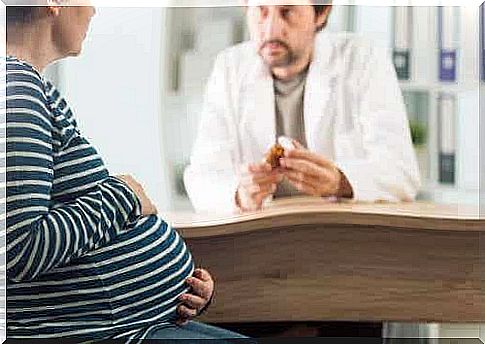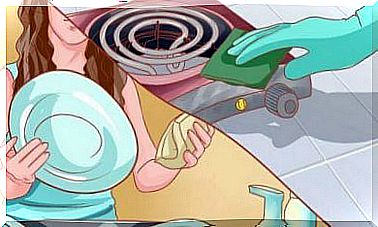Cancer During Pregnancy: What You Need To Know

Having cancer during pregnancy is a concern for anyone who has faced this challenge. It is important to evaluate several aspects before starting treatment.
Pregnancy-associated cancer is any cancer that doctors diagnose during pregnancy or up to one year after birth. However, some experts reduce the period from one year to 6 months.
The diagnosis of cancer during pregnancy is a complex situation to deal with and full of conflicting emotions. Pregnancy is a process where one expects new life. However, cancer poses a real threat.
Due to the high complication of cancer during pregnancy, it is crucial to consider several factors to know how to deal with.
Some of the problems patients need information about are:
- The diagnostic and therapeutic approach they must follow.
- Does the pregnancy worsen the prognosis for the mother?
- Is it advisable to terminate the pregnancy?
- How does the tumor affect the fetus?
In this article, we take a look at these questions.
Therapeutic program for cancer during pregnancy
When this situation occurs, the most important therapeutic goal is to cure the patient without affecting the fetus. However, this ideal goal is often very difficult to achieve, so on many occasions it is necessary to take initiatives that cause less evil.
However, it is important to emphasize the importance of assessing the type of cancer, the stage, the current treatment and the stage of pregnancy in each case to guide the patient. In this way, she will receive detailed and clear information so that in the end she is the one who can make the decision she considers best, according to her beliefs and values.

The effect of pregnancy on the disease
Although there are conflicting opinions on this topic, the idea that pregnancy does not change the natural history of the disease is becoming more and more relevant. The mechanism by which the mother’s body allows the growth of a foreign body may indicate a certain permission for the immune system.
This larger tumor development facility is a constant topic of research, as it can be a key to planning safe treatments. However, it appears that while orderly pregnancy growth is tolerated during pregnancy, it does not appear that this facility exists with a disorderly growth such as neoplasia.
Effects of tumors on pregnancy
It also does not appear to have a significant effect on the fetus or the development of pregnancy. The number of miscarriages and premature births is the same in both cases, and only in certain specific cancers such as leukemia and cervical cancer, do the complications increase, such as infections, bleeding or difficulties with vaginal birth.
Therefore, it is important to know that the fetus is rarely affected. And if it does, the statistics indicate that fetal complications occur to a greater extent with melanomas.
The basis of cancer treatment during pregnancy
The treatment of this disease is based on four main options:
- Surgery: This involves excision of the tumor.
- Radiation therapy: Experts warn against radiation therapy in the first trimester. It can cause changes in fetal development, mental retardation and skeletal changes.
- Chemotherapy: Patients should avoid chemotherapy in the first trimester of pregnancy, especially drugs that alter folate metabolism, such as methotrexate and aminopterin.
- Treatment with only one type of chemotherapy, such as vinblastine or doxorubicin, is recommended.
- Biological agents.

Breastfeeding and cancer
Most doctors recommend that women who have had babies and are undergoing treatment for cancer stop breastfeeding. In the case of breast cancer, if breast surgery is planned, stopping breastfeeding will help reduce the blood flow to the breasts, causing the breasts to shrink, which can help with surgery.
Many of the drugs used in cancer treatment can leak into breast milk. Experts therefore do not recommend breastfeeding if you are undergoing chemotherapy, hormone therapy or targeted therapy.
Conclusion for cancer during pregnancy
Cancer during pregnancy is a very compromising situation that requires assessment from many different perspectives.
It is possible to cure cancer even though she is pregnant without adversely affecting the fetus. However, it is a sensitive situation and you must understand that it is not easy to face.
Consult your doctor about all available options and they will help you understand which one is most appropriate for your case.









